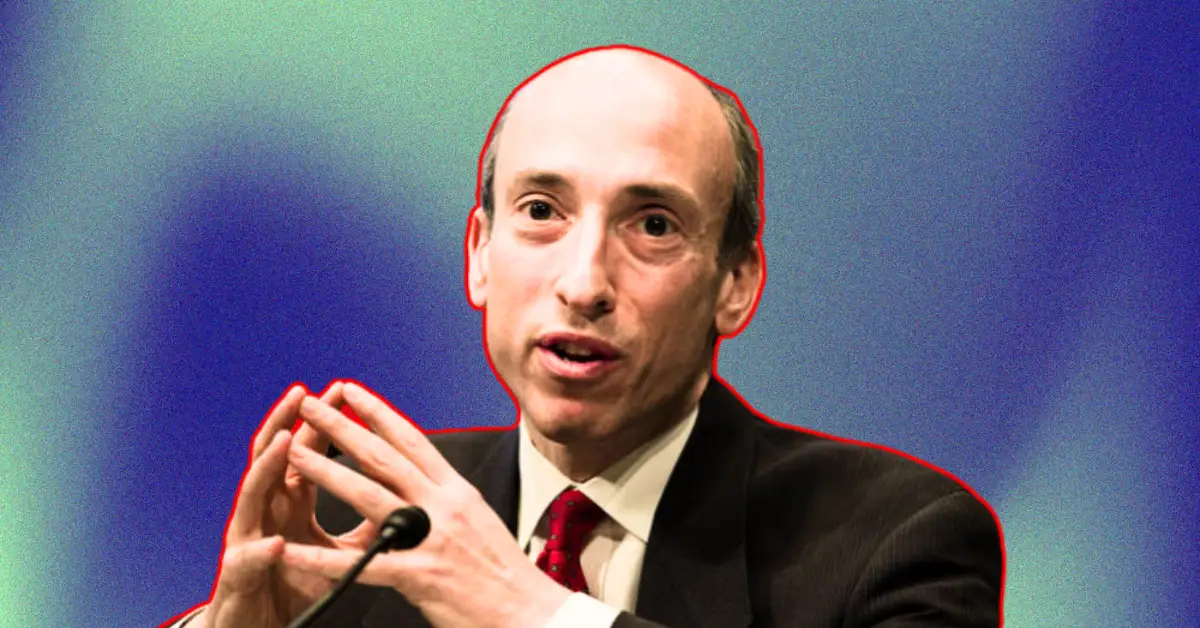
The Crypto Regulator’s Double Game: When Politics Pops the Market Bubble
*Yo.* Let’s talk about the ultimate bubble-wrap party crasher: Gary Gensler. The former SEC chairman spent years playing the crypto boogeyman, waving regulatory torches at Bitcoin and friends like they were haunted houses. But guess what? Fresh leaks suggest his private chats were more “*to the moon*” than “*straight to jail*.” *No way.* This isn’t just hypocrisy—it’s a masterclass in how political theater inflates (and deflates) market bubbles. Strap in, folks. We’re dissecting this *regulatory hall of mirrors* with the subtlety of a wrecking ball.
—
1. The Jekyll & Hyde of Crypto Regulation
Gensler’s public persona was *all* fire and brimstone: cracking down on “wild west” crypto exchanges, suing Coinbase, and labeling everything but Bitcoin a security. But behind closed doors? Former Congressman Patrick McHenry spilled the tea: Gensler’s anti-crypto crusade was *performance art*—tailored to survive Senate confirmations and partisan crossfires.
*Classic bubble behavior.* Regulators, like bad realtors, paint doom scenarios to scare buyers (or in this case, lawmakers) while whispering “*but hey, the fundamentals are solid*” to their buddies. The result? A market swinging between panic and FOMO, ripe for exploitation. Remember 2008? Ratings agencies slapped AAA stickers on garbage mortgages. Today, it’s regulators slapping “fraud” labels on assets they low-key believe in. *Pop goes the credibility.*
—
2. Political Winds vs. Economic Reality
Here’s the dirty secret: crypto regulation was *never* about protecting Grandma from Dogecoin. It’s a political football. Gensler’s flip-flop exposes how:
– Confirmation Bias: To please progressive skeptics (hi, Elizabeth Warren), he turbocharged enforcement. Meanwhile, his MIT lectures praised blockchain’s “transformative potential.” *Schrödinger’s regulator.*
– Revolving Door Whiplash: Next SEC chair could swing the pendulum overnight—approving Ether ETFs, then freezing them after midterms. Markets hate uncertainty, but politicians *love* leverage.
– The Innovation Tax: Over-regulation doesn’t kill crypto; it just pushes it offshore (see: Binance’s exit). The U.S. loses jobs, while Dubai and Singapore cash in. *Slow clap for self-sabotage.*
This isn’t governance—it’s *Kabuki theater* with trillion-dollar stakes. And guess who holds the popcorn bag? Retail investors.
—
3. After the Pop: What’s Left?
Gensler’s *crypto-whisperer* act hints at a future where:
– Regulators Might Chill: If even the “sheriff” was faking it, expect softer rules post-election. Ether ETFs? Maybe. Tokenized real estate? *Why not.*
– Institutional Floodgates Open: Clarity = Wall Street’s green light. But beware—the same banks that called crypto a “scam” in 2018 will front-run the rally.
– The Next Bubble Brews: Politicians will pivot from “*ban it*” to “*tax it*.” Suddenly, every senator owns a *hardware wallet* (purely for research, of course).
*Here’s the kicker:* Markets thrive on transparency, but regulators thrive on ambiguity. The longer this game lasts, the harder the eventual pop.
—
Boom. The takeaway? When regulators wear masks, markets wear straitjackets. Crypto’s future hinges on cutting through the political fog—or waiting for the next admin to flip the script. Until then, keep one hand on your wallet and the other on the eject button. *And maybe buy those clearance-rack shoes.* They’re at least honest about being cheap.






